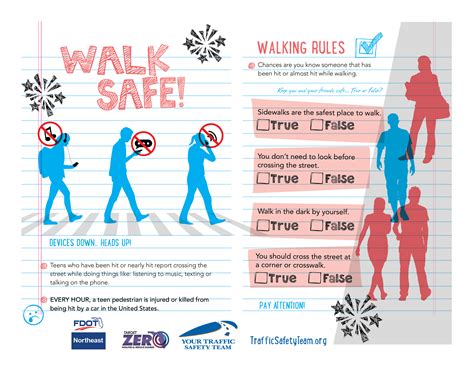Intro
Regular physical activity is essential for maintaining overall health and wellbeing, and one of the simplest and most effective ways to achieve this is through walking. Walking is a low-impact exercise that can be done by people of all ages and fitness levels, making it an ideal activity for those who are looking to improve their health. In fact, walking has been shown to have numerous health benefits, from reducing the risk of chronic diseases such as heart disease and diabetes, to improving mental health and wellbeing. Whether you're looking to lose weight, increase your energy levels, or simply feel more confident and capable, walking can be a powerful tool to help you achieve your goals.
As a form of exercise, walking is often overlooked in favor of more intense activities such as running or weightlifting. However, walking is a highly effective way to improve cardiovascular health, strengthen muscles, and boost flexibility. Additionally, walking can be done almost anywhere, at any time, making it a convenient and accessible form of exercise. Whether you're walking to work, walking around your neighborhood, or walking on a treadmill at the gym, the benefits of walking are numerous and well-documented. In this article, we'll explore the many benefits of walking, and provide tips and advice on how to incorporate more walking into your daily routine.
Walking is an activity that can be enjoyed by people of all ages and fitness levels, and it's never too late to start. Whether you're a seasoned athlete or just starting out, walking can be a great way to improve your health and wellbeing. With its numerous benefits, ease of access, and low-impact nature, walking is an activity that can be enjoyed by everyone. So why not get started today, and see the many benefits that walking can bring to your life?
Benefits of Walking

- Reducing the risk of chronic diseases such as heart disease, stroke, and diabetes
- Improving cardiovascular health by lowering blood pressure and increasing circulation
- Increasing energy levels and reducing fatigue
- Improving mental health and wellbeing by reducing stress and anxiety
- Supporting weight loss and weight management
- Improving sleep quality and duration
- Increasing strength and flexibility, particularly in the legs and hips
These benefits can be achieved through regular walking, and the best part is that you don't need to be a marathon walker to see results. Even short, regular walks can have a significant impact on your health and wellbeing.
Physical Benefits of Walking
The physical benefits of walking are numerous and well-documented. Walking can help to:- Improve cardiovascular health by strengthening the heart and lungs
- Increase circulation and reduce inflammation
- Improve muscle strength and flexibility, particularly in the legs and hips
- Support weight loss and weight management
- Improve bone density, reducing the risk of osteoporosis and fractures
- Reduce the risk of chronic diseases such as heart disease, stroke, and diabetes
These physical benefits can be achieved through regular walking, and can have a significant impact on overall health and wellbeing.
How to Incorporate More Walking into Your Daily Routine

- Start small: Begin with short walks and gradually increase the distance and duration as you become more comfortable
- Schedule it in: Make walking a priority by scheduling it into your daily routine
- Find a walking buddy: Walking with a friend or family member can be a great way to stay motivated and accountable
- Try a new route: Mix up your walking routine by trying new routes and exploring new areas
- Incorporate walking into your daily commute: Consider walking to work or school, or getting off the bus a stop early and walking the rest of the way
By incorporating more walking into your daily routine, you can experience the many benefits of walking and improve your overall health and wellbeing.
Overcoming Barriers to Walking
Despite the many benefits of walking, there may be barriers that prevent you from incorporating more walking into your daily routine. Here are some common barriers and tips for overcoming them:- Lack of time: Try incorporating walking into your daily commute, or scheduling it into your daily routine
- Lack of motivation: Find a walking buddy or try a new route to keep things interesting
- Health concerns: Consult with your doctor or healthcare provider before starting a new exercise routine
- Safety concerns: Walk with a friend or family member, and avoid walking alone at night or in isolated areas
By overcoming these barriers and incorporating more walking into your daily routine, you can experience the many benefits of walking and improve your overall health and wellbeing.
Walking for Weight Loss

- Aim for at least 30 minutes of walking per day: This can be broken up into shorter walks throughout the day
- Incorporate interval training: Alternate between brisk and leisurely walking to boost calorie burn and improve cardiovascular health
- Try hill walking: Walking uphill can be a great way to boost calorie burn and improve muscle strength
- Monitor your progress: Use a pedometer or fitness tracker to track your progress and stay motivated
By incorporating walking into your weight loss routine, you can experience the many benefits of walking and achieve your weight loss goals.
Walking and Mental Health
Walking can also have a significant impact on mental health and wellbeing. Here are some ways that walking can support mental health:- Reducing stress and anxiety: Walking can be a great way to clear your mind and reduce feelings of stress and anxiety
- Improving mood: Walking can release endorphins, which can help to improve mood and reduce symptoms of depression
- Improving sleep: Walking can help to improve sleep quality and duration, which is essential for mental health and wellbeing
- Increasing self-esteem: Walking can be a great way to boost self-esteem and confidence, particularly when combined with other forms of exercise
By incorporating walking into your daily routine, you can experience the many benefits of walking and improve your mental health and wellbeing.
Walking Safety Tips

- Walk with a friend or family member: This can be a great way to stay motivated and accountable, and can also help to improve safety
- Avoid walking alone at night: If possible, try to avoid walking alone at night, particularly in isolated areas
- Wear reflective clothing: Wearing reflective clothing can help to increase visibility, particularly in low-light conditions
- Stay alert: Stay alert and aware of your surroundings, particularly when walking in busy or unfamiliar areas
By following these safety tips, you can minimize the risks associated with walking and stay safe while enjoying the many benefits of this activity.
Walking and Nutrition
Walking can also have a significant impact on nutrition and overall health. Here are some tips for using walking to support nutrition:- Stay hydrated: Make sure to drink plenty of water before, during, and after walking
- Fuel your walks: Eat a balanced diet that includes plenty of complex carbohydrates, protein, and healthy fats
- Avoid sugary snacks: Try to avoid sugary snacks and drinks, which can provide a quick energy boost but can also lead to energy crashes and decreased motivation
- Listen to your body: Pay attention to your body and take rest days as needed, particularly if you're just starting out with walking
By incorporating walking into your daily routine and following these nutrition tips, you can experience the many benefits of walking and improve your overall health and wellbeing.
Conclusion and Next Steps

We encourage you to share your thoughts and experiences with walking in the comments below. How do you incorporate walking into your daily routine, and what benefits have you experienced as a result? Share your tips and advice with others, and let's work together to promote the many benefits of walking.
What are the benefits of walking for physical health?
+Walking can help to improve cardiovascular health, increase circulation, and reduce the risk of chronic diseases such as heart disease and diabetes. It can also help to improve muscle strength and flexibility, particularly in the legs and hips.
How can I incorporate more walking into my daily routine?
+Try scheduling walking into your daily routine, finding a walking buddy, or incorporating walking into your daily commute. You can also try taking the stairs instead of the elevator, or walking to work or school instead of driving.
What are the benefits of walking for mental health?
+Walking can help to reduce stress and anxiety, improve mood, and improve sleep quality and duration. It can also help to boost self-esteem and confidence, particularly when combined with other forms of exercise.
How can I stay safe while walking?
+Try walking with a friend or family member, avoiding walking alone at night, and wearing reflective clothing. You can also stay alert and aware of your surroundings, particularly in busy or unfamiliar areas.
What are some tips for using walking to support weight loss?
+Try incorporating interval training, hill walking, and monitoring your progress with a pedometer or fitness tracker. You can also try to aim for at least 30 minutes of walking per day, and incorporate strength training exercises to build muscle and boost metabolism.
